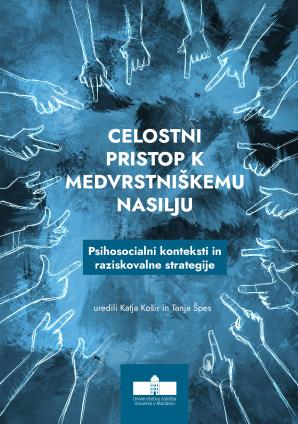Socialni cilji kot dejavnik razlik v izvajanju medvrstniškega nasilja
Synopsis
Social goals guide adolescents towards achieving a desired social position in their peer group, which is often achieved by engaging in peer violence. The purpose of the study was to determine how students differ in the expression of social goals in the performance of peer violence, insecurity due to social status, and perceived peer support, and to examine whether gender plays a moderator role in the relationship between social goals and the performance of peer violence. Our study included 6244 students. The results showed that students with higher expressed popularity goals perpetrate more violence compared to others and report more insecurity due to social status, while students with higher expressed affection goals perpetrate less violence and report more perceived peer support. Gender proved to be a significant predictor in the relationship between social goals of popularity and the performance of violence. The effect is greater for boys than for girls.







